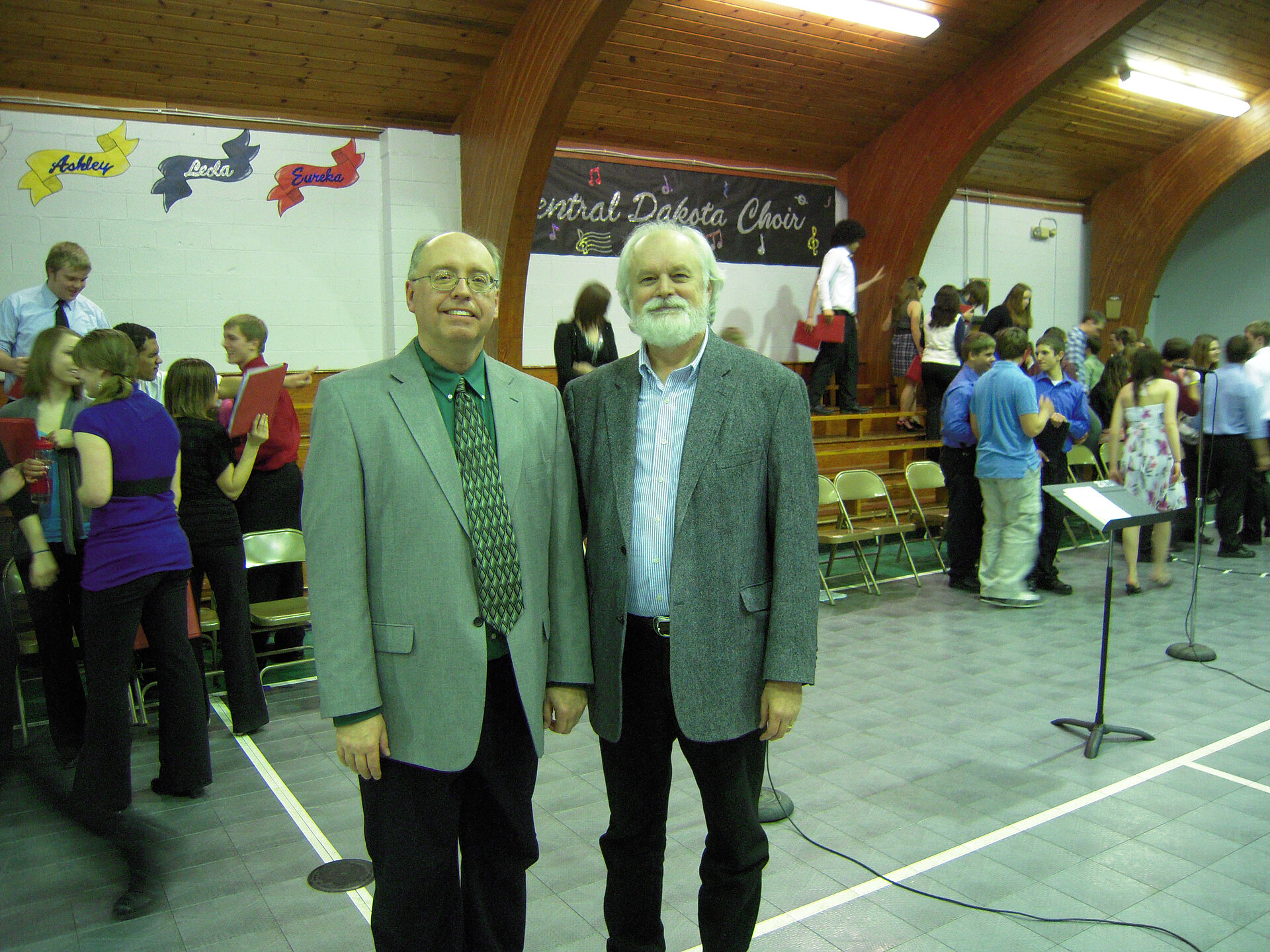
On March 15, the Central Dakota Choir performed an original musical composition in the German-Russian community of Zeeland, N.D. The 125-voice choir is comprised of students from four schools in North Dakota and South Dakota.
The performance, arranged and directed by composer Paul Kolar, was based on a poem written by NDSU professor emeritus of anthropology Timothy J. Kloberdanz. The piece is titled “When Human Eyes Run Dry of Tears.” Kloberdanz’s poem is written from the perspective of an immigrant woman who loses seven young children during a devastating epidemic in south-central North Dakota.
The 104-line poem first appeared in print in March 1998. The timing for publication was intentional, says Kloberdanz, since he based his fictional poem on an actual incident that occurred exactly 100 years earlier. During a four-week period in the spring of 1898, German-Russian settlers Michael and Louisa Feist lost six children and a young nephew to diphtheria. The family lived on a prairie homestead near Zeeland, N.D. Today, a row of identical iron crosses stand in the historic St. John’s Cemetery north of Zeeland, marking the graves of all seven Feist children.
Kloberdanz’s poem describes the struggles and inner torment of a German-Russian mother who must return to the same cemetery several times to bury and mourn yet another child. On Good Friday, April 8, 1898, the woman writes in her journal: “O God, how can we mortals grieve when human eyes run dry of tears? I ache so bad but I can no longer cry.” More than a month later, on May 10, 1898, the woman writes: “While I was working in the garden, something wet fell upon my hand. O purest sorrow! O sweet relief!”
Many of the 125 students who performed the piece on March 15 were of German-Russian ancestry and several were related to the early pioneering family of Michael and Louisa Feist.
“I wrote the poem more than a dozen years ago,” says Kloberdanz. “At the time, I had no idea it might be set to music and performed by a large choir one day. But I find it very appropriate that the musical version had its premiere in Zeeland, N.D. This is the place where the 1898 Feist family tragedy occurred. And so the performance was a way of acknowledging a people’s loss and a way of giving back to the community.”
Kloberdanz and his wife, Rosalinda, were special guests at the concert. “It was a very moving experience for everyone who was present,” admits Kloberdanz. “The students sang their hearts out and the crowd really responded. Although the piece dealt with a terrible tragedy, we were left with a feeling of great optimism and hope. It was an incredibly touching and powerful performance.”